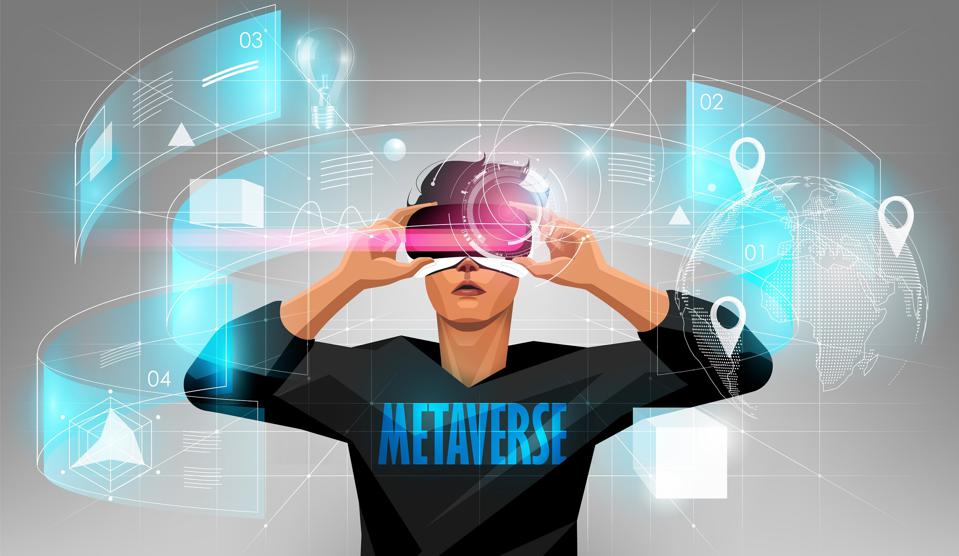#metaverse #NFT
$EL
“Done well, the endless possibilities of the metaverse presents opportunity for beauty brands to foster lifelong loyalty” –Paul Ebeling
There have been a lot of conversations about the metaverse and how it might reshape the future of retail. More and more brands are dipping into the virtual world with digital clothing and collections in the fashion industry.
In March, the fashion industry even held its first major fashion show, “Metaverse Fashion Week” earlier in March. The beauty industry is also moving in tandem, albeit it is playing catch up with its more established counterpart.
That is where the beauty lies.
While the metaverse remains to be an evolving space and concept, there are a lot of opportunities for beauty brands to use the virtual world to engage, create and build communities.
The metaverse provides possibly endless ways as it is not confined to limitations of the physical world such as booking a venue or issues pertaining to the supply chain. Users of the metaverse only need to log into the respective platforms and then enjoy the content put out by the different beauty brands.
More than just a marketing tool, beauty brands should not fall into the trap of just jumping onto the bandwagon of the metaverse. There should be a storytelling element that the brand is trying to bring across to their consumers digitally.
Exemplifying this is Estée Lauder, which had partnered with Metaverse Fashion Week to release an NFT of its iconic Advanced Night Repair. The result was a virtual experience where users learned more about the brand’s history, ingredients and how they should feel after using the product in real life.
This is 1 of the ways that brands can employ to engage with consumers and expand its reach to those who might not be familiar with the brand. “It’s not specific to age; it’s about attracting and engaging with new communities of consumers who are already immersed in the metaverse and interested in connecting with beauty and fashion brands virtually,” says the SVP of global consumer marketing at Estée Lauder.
There is potential for more on the metaverse. Aside from engaging with users through branded content, beauty brands that sell cosmetics can take advantage of the virtual space as practice grounds for their upcoming launches. These cosmetic brands can test the waters first by releasing a digital version of its products. The concept is similar to using Augmented Reality (AR), where the new products can either appear on users’ avatars or themselves through a filter.
Brands like MAC Cosmetics, L’Oreal and Sephora also have virtual try-on so that consumers can visualize themselves before making the purchase.
Brands can push the narrative even further by mimicking how its products can be applied in real life, which further enhances the interaction between both parties. The metaverse’s potential is presumably limitless in terms of how users can express themselves through their avatars. Through this 3rd party platform, more surreal beauty looks can be unlocked, and new areas of inclusivity and self-expression can be achieved.
Despite all the efforts in elevating the customer experience in the metaverse, it is imperative that these beauty brands also manifest the digital aspects into tangible outcomes. Ultimately, revenues need to be earned to keep the metaverse running. After going through almost two years of online Zoom sessions, a common sentiment is that the virtual world cannot be a replacement for physical meet-ups.
This is where beauty brands can come in and bridge the gap. After collecting enough information through its engagements with users on the metaverse, it can curate makeup looks customized to their liking. Tying in the other facets of the metaverse like NFTs, each look can be minted and released in limited quantities to those who have earned their stripes by participating in online events.
The link to the physical world could be sending consumers the actual products used to create the signature makeup look in the metaverse or inviting them to a store where the brand’s professional makeup artists can recreate the looks. As technology further advances, the makeup process could even be automated and programmed into a robot. One only has to look back at the late fashion designer Alexander McQueen’s Spring 1999 show to glimpse what could be in the future. Of course, the scale and size of those paint-spray robots need to be miniaturized to be user-friendly.
Looking at the possibilities that the metaverse offers is mind-blowing. If beauty brands can play their cards well, the metaverse could not only enrich its consumer’s experience interacting with the brand, but it will also become the new Mother Lode of gold.
Have a prosperous day, Keep the Faith!









